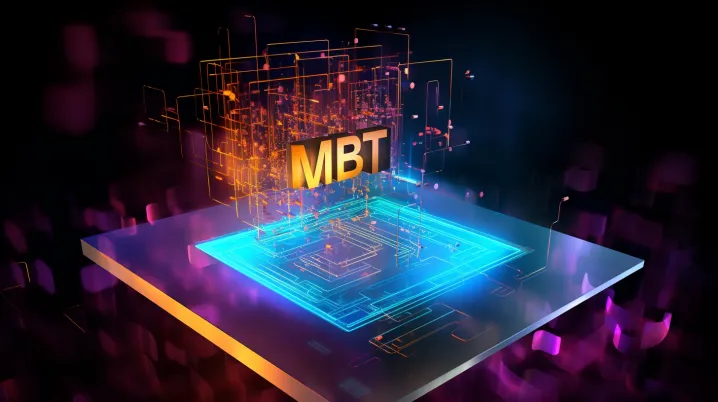Unveils IBM Quantum AI Processor Assessing OpenAI’s Q* Concerns
Table of Contents
IBM has unveiled ‘IBM Quantum AI processor’, a fresh lineup of large-scale quantum processors, along with their latest Quantum System Two. Additionally, the company has outlined its ambitious 10-year strategy to enhance the performance and reliability of these processors.
On December 4, IBM, a prominent technology company in the United States, revealed a set of advancements in its IBM Quantum AI processor’. The company extended its plan to cover a decade and introduced a new line of IBM Quantum AI processors’ called ‘IBM Quantum Heron’. These processors are designed to provide the highest performance metrics and the lowest error rates of any IBM Quantum processor released so far.
Advancements in IBM Quantum AI Processor Technology

In 2019, IBM became the pioneer in introducing its circuit-based commercial quantum computer, known as the IBM Quantum AI processor’. This cutting-edge system incorporates tailor-made components that synergistically operate to establish an unparalleled cloud-based quantum computing platform.
It is predictable that when AI systems begin to solve problems, there will be a temptation to assign them more responsibility. However, this calls for increased caution.
OpenAI has yet to verify the nature of Q*, as reinstated Chief Executive Officer Sam Altman simply referred to it as an “unfortunate leak.” However, in the media, it appears to bear resemblance to a system being developed by Alphabet Inc.’s Google.
Following that demonstration, prominent researchers, scientists, and engineers hailing from esteemed institutions such as the Argonne National Laboratory of the U.S. Department of Energy, the University of Tokyo, the University of Washington, the University of Cologne, Harvard University, Qedma, Algorithmic, UC Berkeley, Q-CTRL, Fundacion Ikerbasque, Donostia International Physics Center.
IBM Quantum System Two: Advancing Computational Frontiers
The University of the Basque Country, alongside IBM, has broadened the scope of utility-scale quantum computing demonstrations. Their aim is to validate its significance in delving into unexplored realms of computational possibilities.
IBM has recently introduced its first modular quantum computer, known as IBM Quantum System Two, which is a crucial component of the company’s quantum-focused supercomputing infrastructure. The initial IBM Quantum System Two is situated in Yorktown Heights, New York, and is currently operational with three IBM Quantum AI processors and accompanying control electronics.
Gemini, the formidable new rival of ChatGPT, is not only capable of generating text and images but also excels in planning and strategizing, as stated by Demis Hassabis, the CEO of Google DeepMind. Can we expect a secure and fair future from AI? It is possible, provided that we exercise caution in our approach to bioethics.
IBM’s Quantum Advancements and AI Regulation Concerns
Dario Gil, IBM SVP and Director of Research, stated that we are currently in a period where quantum computers are being utilized to delve into uncharted territories of science. As we progress in enhancing the scalability and effectiveness of quantum systems through modular architectures, we will enhance the IBM Quantum AI processor reliability of a utility-scale quantum technology stack. This will enable us to provide our users and partners with the means to tackle more intricate problems and push the limits of scientific exploration.
Elon Musk, the visionary behind Tesla and the driving force behind the commercialization of AI through his initial funding for OpenAI in 2015, has voiced concerns regarding the potential hostility of self-learning AI systems towards humanity. In fact, he has gone as far as stating that this poses a more significant threat than even nuclear weapons.
In March of this year, Musk, along with other prominent figures from the technology and academic fields such as Steve Wozniak, co-founder of Apple, and Yuval Noah Harari, author of Sapiens, came together to release an open letter. The letter urged all laboratories to temporarily halt the progress of artificial intelligence (AI) development for a period of six months.
The purpose behind this pause was to provide ample time for the government to formulate sensible regulations pertaining to AI.
Featured Insights
 Integrating Real-Time Weather Data into Your Travel and Navigation App
Integrating Real-Time Weather Data into Your Travel and Navigation App The Future is Now: AI and ML Technologies Reshaping Healthcare
The Future is Now: AI and ML Technologies Reshaping Healthcare Introduction to Digital Twin Technology in Manufacturing with Unprecedented Efficiency and Innovation
Introduction to Digital Twin Technology in Manufacturing with Unprecedented Efficiency and Innovation Adobe’s Firefly AI: New Tools for Photoshop and Illustrator
Adobe’s Firefly AI: New Tools for Photoshop and Illustrator Introducing Meta Imagine Me: Your Digital Doppelganger
Introducing Meta Imagine Me: Your Digital Doppelganger AI in Gaming is Transforming the Industry
AI in Gaming is Transforming the Industry